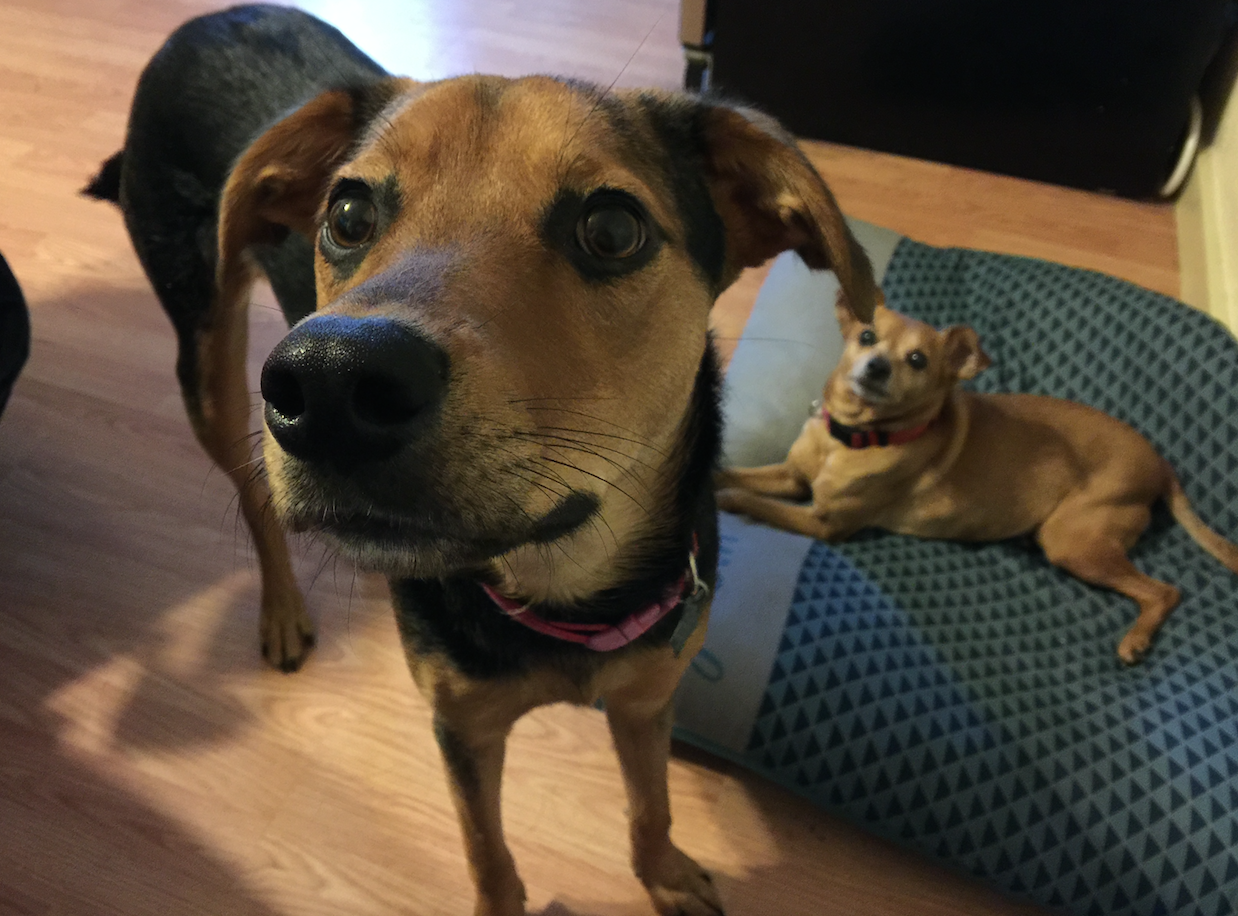
The aromas of baked and fried turkeys, cooked potatoes, homemade dressing, gravy, rolls, fresh cranberries and pies will fill kitchens all across the country Thursday. The Thanksgiving scent will linger in the air, with holiday food and fun for the entire family.
This includes the family dog, whose nose is way more powerful than a human's. Even though this is a time of year to give, it's not always wise to shuffle your savory turkey day meal to the family pet. In fact, there are many favorite Thanksgiving staples that can be harmful to your dog, cat or other pets.
Here's a list of Thanksgiving foods and items that can make your pet sick, so beware of handouts, falling scraps and overloaded garbage cans. Also keep this list in mind throughout the year to keep your furry best friend around much longer.
Turkey, turkey skin and bones
First of all, an undercooked or raw turkey might contain salmonella bacteria. Fatty turkey skin can create gastrointestinal issues and inflammation in the pancreas. Dogs love bones, but poultry bones have been known to splinter off in the esophagus or intestines, and this would most likely require surgery to remove.
Turkey twine
That little thin rope to keep the turkey tied together in the cooking process gets soaked in turkey juices, and your dog might want to gnaw on it because of its delicious flavor. But as the little puppy comes out of them when tearing through twine, keep in mind that the twine could carry bacteria and perhaps cause salmonella poisoning.
Gravy, trimmings and other "fatty foods"
Foods that have a high fat content — butter, gravy, turkey drippings, bacon, potatoes, dressing, stuffing — can cause gastrointestinal distress in your dog. Symptoms include vomiting, diarrhea, abdominal pain and loss of appetite, and they usually don't show up immediately.
Corn on the cob
A handful of corn kernels here and there usually isn't bad for your dog. That is, unless they're allergic to corn. But if the cob is left out, dogs might go after them. The problem, though, is the cob is difficult to pass through a dog's digestive system. This could cause bowel obstruction that would require surgery.
Garlic and Onions
Though these are common in various Thanksgiving dishes, these ingredients will damage red blood cells in dogs, often leading to anemia. Though symptoms won't show up immediately, your dog or cat might seem fine for a few days before suddenly becoming weak. Common symptoms include vomiting, diarrhea and weakness.
Raw bread dough
The raw yeast from bread dough contains ethanol, which could lead to alcohol poisoning or "bloated drunken pets." Either way, this is a life-threatening emergency.
Cake
The raw eggs in cake could result in food poisoning from salmonella bacteria.
Grapes/Raisins
Grapes and raisins are poisonous to dogs, and most likely will cause renal failure. A dog that eats grapes or raisins will most likely start vomiting and have diarrhea. These could also force their kidneys to shut down. Should your dog ingest grapes, contact your vet immediately to help prevent kidney failure.
Chocolate
Chocolate can cause increased heart rate or seizures in dogs, and it's because it contains a chemical called theobromine, which is easily metabolized in humans. Dogs, not so much. Milk chocolate contains less theobromine, but dark chocolate substantially more. Larger dogs can take a little bit of chocolate, but it's not advised for any dogs to have chocolate.
Nuts
These are high in fat, which increase the risk of pancreatitis. Macadamia nuts are especially dangerous.
Xylitol (artificial sweetener)
This can be found in candies or desserts, and it can lower a dog's blood sugar and result in liver damage.
Uncommon Knowledge
Newsweek is committed to challenging conventional wisdom and finding connections in the search for common ground.
Newsweek is committed to challenging conventional wisdom and finding connections in the search for common ground.
About the writer
Scott McDonald is a Newsweek deputy night editor based in Cape Coral, Florida. His focus is assigning and writing stories ... Read more
To read how Newsweek uses AI as a newsroom tool, Click here.








